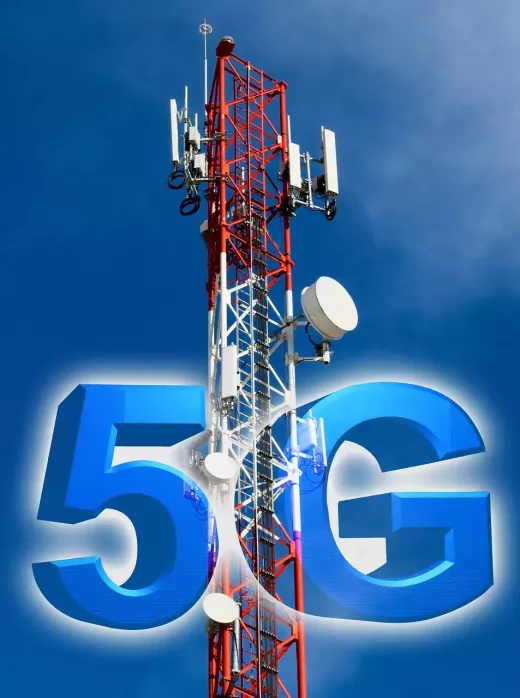Differences between Bing Ads and Google Ads
At their core, both Bing Ads and Google Ads function similarly. They both allow businesses to bid on keywords that are relevant to their products or services, and display ads to users who search for those keywords. However, there are some key differences between the two platforms that businesses should be aware of.
Cost per click
One of the biggest differences between Bing Ads and Google Ads is the cost per click. Bing Ads tends to be cheaper than Google Ads, with the average cost per click being around 33% lower. This is because Bing Ads has a smaller user base than Google Ads, meaning there is less competition for ad space. However, it's worth noting that while Bing Ads may be cheaper, it also has a smaller reach than Google Ads.
Targeting options
Both Bing Ads and Google Ads offer a variety of targeting options to businesses. However, Google Ads tends to have more advanced targeting options, such as the ability to target users based on their interests, demographics, and behaviors. Bing Ads, on the other hand, has more limited targeting options, but does offer some unique options such as targeting users based on their device type.
Search volume
Google is the most popular search engine in the world, with over 90% of the market share. As a result, Google Ads has a much larger search volume than Bing Ads. While Bing Ads may have a smaller reach, it can still be a valuable platform for businesses looking to target specific demographics or industries.
Advantages and disadvantages of Bing Ads
Bing Ads may not have the same reach as Google Ads, but it does have some distinct advantages for businesses.
Advantages
1. Lower cost per click: As previously mentioned, Bing Ads tends to be cheaper than Google Ads, making it an attractive option for businesses on a budget.
2. Less competition: With fewer advertisers on the platform, businesses may find it easier to rank for their desired keywords on Bing Ads.
3. Targeting options: While Bing Ads may have fewer targeting options than Google Ads, it does offer some unique options such as device targeting and LinkedIn targeting.
Disadvantages
1. Smaller reach: Bing Ads has a smaller user base than Google Ads, meaning businesses may not be able to reach as many potential customers.
2. Limited targeting options: While Bing Ads does offer some unique targeting options, it doesn't have the same level of advanced targeting options as Google Ads.
3. Less data: With a smaller user base, businesses may have less data to work with when optimizing their campaigns.
Advantages and disadvantages of Google Ads
Google Ads is the most popular digital advertising platform in the world, but it also has its own set of advantages and disadvantages.
Advantages
1. Large reach: With over 90% of the search engine market share, Google Ads has a massive reach and can help businesses reach a vast audience. 2. Advanced targeting options: Google Ads offers a wide range of advanced targeting options, including interest targeting, demographic targeting, and behavior targeting. 3. Rich data: With a massive user base, businesses have access to a wealth of data to help optimize their campaigns.
Disadvantages
1. High cost per click: Google Ads tends to be more expensive than Bing Ads, making it a less attractive option for businesses on a tight budget.
2. High competition: With so many advertisers on the platform, it can be difficult for businesses to rank for their desired keywords.
3. Complexity: Google Ads can be a complex platform to navigate, particularly for businesses that are new to digital advertising.
Which platform is right for your business?
Deciding between Bing Ads and Google Ads ultimately comes down to your business's unique needs and goals. Here are some key factors to consider:
Budget
If you're on a tight budget, Bing Ads may be the better option, as it tends to be cheaper than Google Ads. However, if you have a larger budget and are looking to reach a massive audience, Google Ads may be the way to go.
Reach
If you're looking to reach as many potential customers as possible, Google Ads is the clear winner, with its massive user base and high search volume. However, if you're targeting a specific demographic or industry, Bing Ads may be a better fit.
Targeting options
If advanced targeting options are important to your business, Google Ads is the way to go. However, if you're looking for unique targeting options such as device targeting or LinkedIn targeting, Bing Ads may be the better option.
How to set up a Bing Ads campaign
Setting up a Bing Ads campaign is relatively straightforward. Here's a step-by-step guide:
1. Sign up for a Bing Ads account.
2. Create a new campaign.
3. Choose your campaign type (search or audience).
4. Set your campaign budget.
5. Choose your target audience and targeting options.
6. Create your ad groups and ad copy.
7. Set your bids and launch your campaign.
How to set up a Google Ads campaign
Setting up a Google Ads campaign can be a bit more complex. Here's a basic overview of the process:
1. Sign up for a Google Ads account.
2. Choose your campaign type (search, display, or video).
3. Set your campaign budget.
4. Choose your target audience and targeting options.
5. Create your ad groups and ad copy. 6. Set your bids and launch your campaign.
Tips for optimizing your Bing Ads campaign
Once your Bing Ads campaign is up and running, there are a few things you can do to optimize it for success:
1. Use negative keywords to filter out irrelevant searches.
2. Test different ad copy to see what resonates with your target audience.
3. Use ad extensions to provide additional information about your business.
4. Monitor your campaign regularly and adjust your bids as needed.
5. Use Bing's built-in analytics tools to track your campaign's performance.
Tips for optimizing your Google Ads campaign
Optimizing a Google Ads campaign can be a complex process, but here are a few tips to get you started:
1. Use negative keywords to filter out irrelevant searches.
2. Test different ad copy and landing pages to see what performs best.
3. Use ad extensions to provide additional information about your business.
4. Monitor your campaign regularly and adjust your bids as needed.
5. Use Google's built-in analytics tools to track your campaign's performance.
Bing Ads vs. Google Ads: Which is better for your business?
Deciding between Bing Ads and Google Ads ultimately comes down to your business's unique needs and goals. However, here are a few scenarios in which one platform may be a better fit than the other:
You're on a tight budget
If you're on a tight budget, Bing Ads may be the better option, as it tends to be cheaper than Google Ads.
You're targeting a specific demographic or industry
If you're looking to target a specific demographic or industry, Bing Ads may be a better fit, as it allows for more granular targeting options.
You're looking to reach a massive audience
If you're looking to reach as many potential customers as possible, Google Ads is the clear winner, with its massive user base and high search volume.










